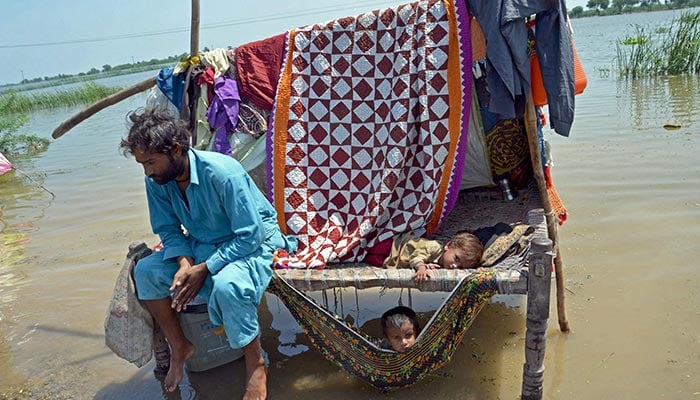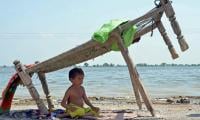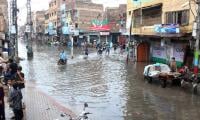Disease outbreaks hit affectees in Southern Punjab’s flood-hit areas
After Sindh and Balochistan, flood affectees in Southern Punjab also infected with water-borne diseases
Lahore: After Sindh and Balochistan, infectious diseases have started affecting the victim of the flood-hit areas in Punjab due to lack of hygiene and stagnant water.
Punjab’s health department has released statistics related to the disease outbreaks across the province, which shows Southern Punjab reflecting the most number of cases.
According to statistics, over 140,000 flood affectees have been infected with various diseases in the southern part of the province, out of which 37,000 are suffering from respiratory infections.
The health department of Punjab states that over 33,000 affectees are suffering from rashes and itching, while over 17,000 remain infected with diarrhoea and stomach diseases.
WHO concerned for flood affectees
The current flood situation will highly likely increase the spread of disease, especially if and when response capacities are hindered, says the World Health Organisation (WHO), as Pakistan continues its relentless battle against deadly floods.
In its latest situation report on flooding in Pakistan, the WHO pointed out that the heavy monsoon rains in Pakistan which started in mid-July 2022 are continuing in many parts of the country and have affected 116 districts (75%) out of 154 districts of the country. The most affected province is Sindh, followed by Balochistan.
As of August 25, 2022, more than 33 million people have been affected and over 6.4 million people are in dire need of humanitarian aid, including 421,000 refugees, the WHO report highlighted. More than 1,100 lives have been lost and almost 15,000 people injured.
The WHO report focused on what it called the "severe" impact on health facilities, stating that as of August 28, 2022, 888 health facilities have been damaged in the country of which 180 of them are completely damaged. "Access to health facilities, health care workers, and essential medicines and medical supplies remain the main health challenges for now," the report read.
Pakistan's health system is already battling multiple concurrent health threats, including COVID 19, and outbreaks of cholera, typhoid, measles, leishmaniasis and HIV, the WHO said, adding that even before the current floods, there was a significant disparity in access to health services between rural and urban areas.
-
NHS warning to staff on ‘discouraging first cousin marriage’: Is it medically justified?
-
Ariana Grande opens up about ‘dark’ PTSD experience
-
Dakota Johnson reveals smoking habits, the leading cause of lung cancer
-
Chris, Liam Hemsworth support their father post Alzheimer’s diagnosis
-
Tom Hanks diabetes 2 management strategy laid bare
-
Catherine O’Hara becomes beacon of hope for rectal cancer patients
-
FDA sends 'refusal-to-file' to Moderna over new flu vaccine
-
Cure flu with theses two golden foods














